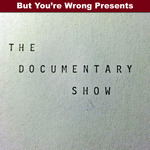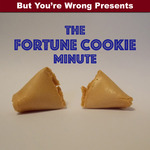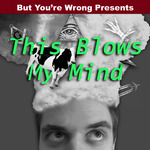Encyclopedia Britannica has stopped printing hardbound volumes. They actually stopped in 2010 and they haven’t been able to sell 8,000 sets from that printing because, well, no one needs information from 2010. A lot of opinions I’ve read are saying that it’s a terrible thing, that it’s a sign of the end of print publishing. I couldn’t disagree with them more.
Encyclopedia Britannica is facing the same problem newspapers have been facing for the last few years. The internet is becoming the primary source of news information over anything in print. The first advantage is that it’s faster – a lot faster. It’s hard to be exclusive as the paper hits the pavement in the morning, when I logged onto Twitter before I went to bed and found out the same information. Not to mention the added advantage of being able to find things out directly from the source instead of having some kind of a filter. As protests were breaking out in Libya and Egypt, people on the ground were using Twitter and social media to get the word out about what was going on. The only advantage of print media during that time was to consolidate the information we were getting elsewhere.
Maybe an encyclopedia isn’t best for late breaking news, but what about history? Some blogs I read complained about the students and the libraries. Frankly, it’s better for them and anyone that thinks differently is an idiot. Even the past is never concrete. There’s always something new being discovered even about our history. And to be handing students old information seems irresponsible, but it’s done because schools can’t afford to keep buying the newest volumes. The best thing for them is to use the online services that Britannica will still offer to schools and libraries. Students can still use the resource, but still get the latest information.
A good example that comes to mind is Mark Felt. Seven years ago, Mark Felt was revealed to be the Deep Throat informant from Watergate. (If you’re not familiar with any of this, read All The President’s Men, or watch the film.) Now, if a kid wanted to do an article about Watergate in 2006 and he had an encyclopedia, he’d probably have the wrong information. Even if that encyclopedia was published at the beginning of 2005, the same year the news broke, it wouldn’t have Mark Felt’s name as Deep Throat. It may reference his name as a suspect, but it’s hardly accurate information the kid is reporting. Are we helping or hurting kids by turning them to this out-dated print information? How will they stay informed in adult life?
At the rate information moves today, it’d be a disservice to any students to have them learn from something that is missing information the day after it prints. We have to give students the information that’s going to give them the best advantage. I don’t think I knew anyone growing up that had encyclopedias in their house and if I did, we never used them. We just went to the library.
I saw one article which cited that about one-third of Americans don’t have access to the internet at home or work. What are this people going to do? Well, chances are if they don’t have money for the internet, they aren’t going to be buying encyclopedias either. They’re problems aren’t going to be solved by how they receive information. That’s an issue for another discussion.
But is this latest news really a nail in the coffin of print media? I don’t think so. It’s a bad sign for newspapers maybe, and magazines – anyone that is trying to serve as our news source. It shows that we want out information faster, and that’s a good thing. People will still want to read books non-electronically. They’ll want to read Tom Clancy thrillers, James Patterson mysteries, and vampire novels on things that won’t also receive their emails or give them calendar reminders. Print publications will go down, electronic publications will go up. At some point they’ll find a balance with each other and we’ll all be okay.
 Thursday, March 22, 2012 at 5:43PM
Thursday, March 22, 2012 at 5:43PM 





